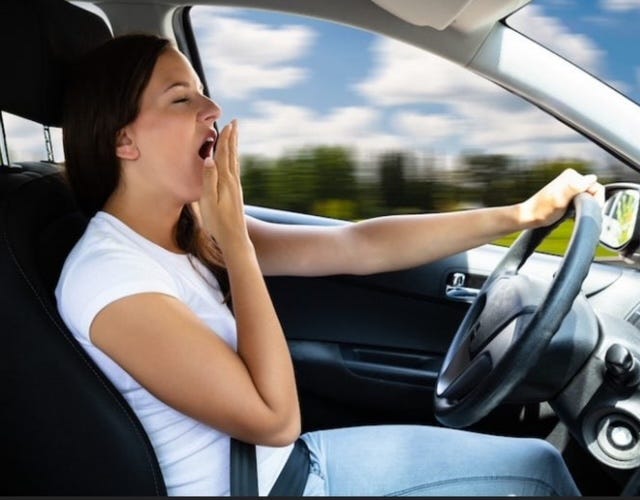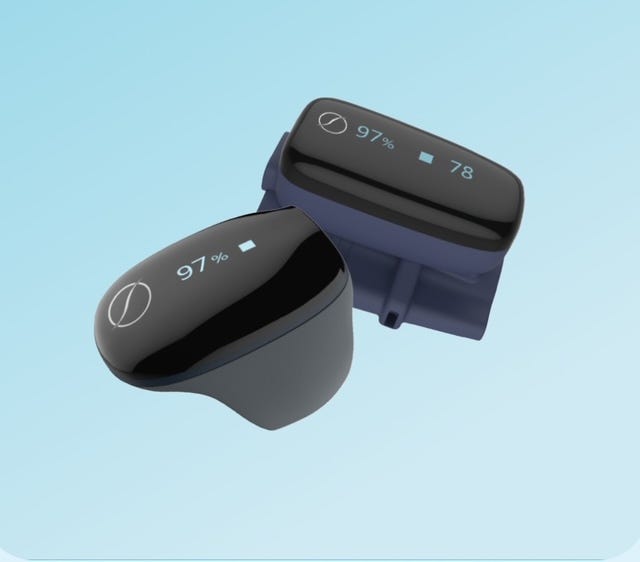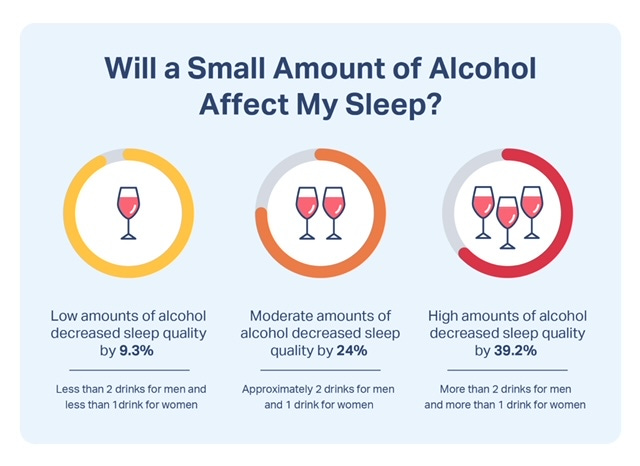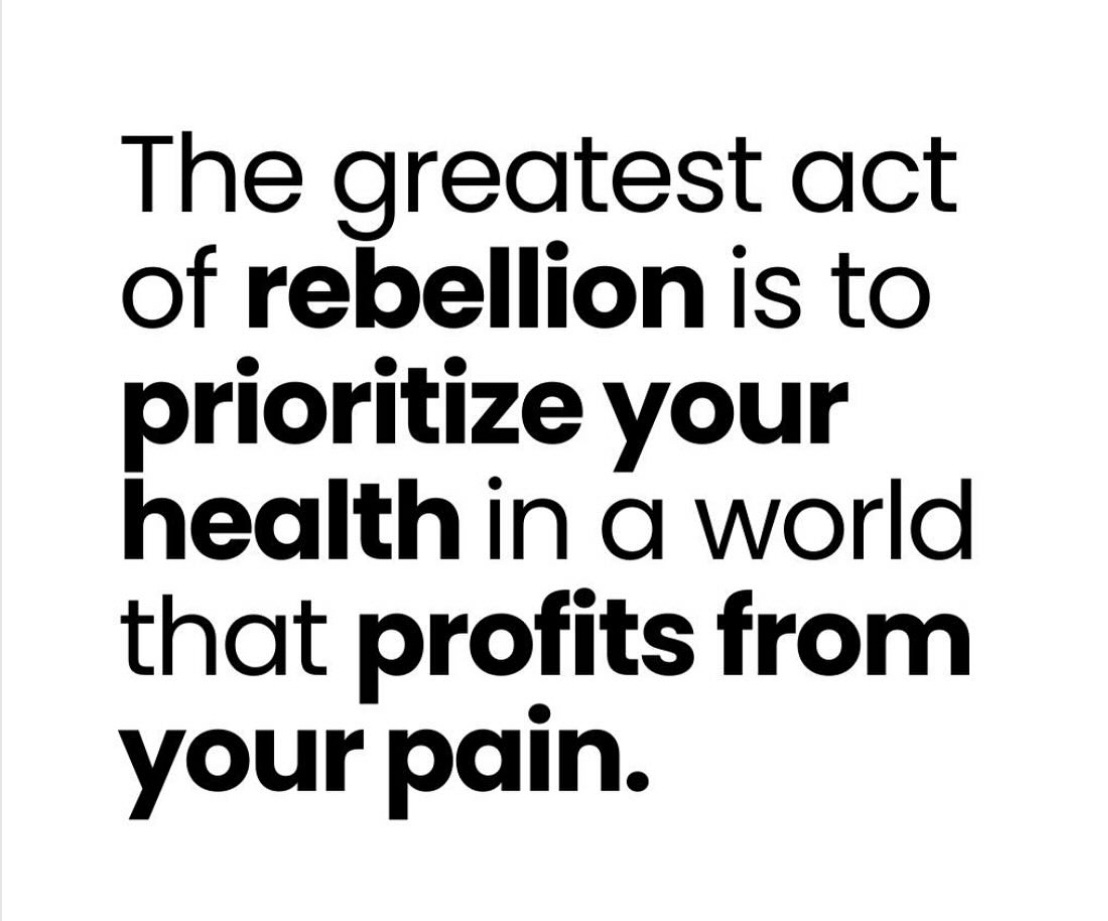…you may just save your life!
Did you know that driving while sleep deprived has been identified as impairment similar to driving while intoxicated? In 2017 30% of fatal car accidents or over 9000 casualties were caused while driving intoxicated. Compare that to what experts believe to be about 20% of fatal car accidents or over 6000 casualties being caused while driving with too little sleep. This only ONE of the many possible harms caused by not receiving quality sleep.
Background
You may wonder why a dentist spends so much time talking about sleep. For me personally there are two components to sleep that drive my passion for the topic. The first is fundamental: sleep is critical to every single system of our body functioning properly. When our bodies are in a sleep deprived state, we are susceptible to a litany of mental and physical health conditions. Sadly, many of these symptoms are treated with interventions that don't treat the root cause (pun intended) of an illness and patients wind up chasing side effects instead of attaining true healing. Sleep is foundational to your good oral and physical health.
The second is that low quality sleep often revolves around breathing issues that compromise the ability to sleep with your mouth closed. When you sleep with your mouth open, your body's natural capacity to fight tooth decay is severely compromised. Most patients mistakenly believe that cavities are something that happen only to children and teens but the truth is we see tooth decay at all ages. As a dentist, I want to arm you with information that enables you to have the healthiest mouth possible reducing your need for dental treatment.
With more than 25% of the US adult population (aged 30-70) having sleep apnea, it is critical that the discussion of sleep be had with our patients. As a nation that boasts screenings for breast, prostate and colon cancers which have a much lower population incidence, I have heard it argued that sleep studies should become an annual screening in an effort to treat the underlying cause of many ailments associated with aging. The list of conditions associated with sleep disordered breathing include but are not limited to: cardiovascular disease, cancer, issues with memory and cognitive function and metabolic disorders like obesity and diabetes.
Obstructive sleep apnea can only legally be diagnosed by a trained sleep physician but dentists are charged with a key treatment intervention. I became interested in helping patients with sleep over a decade ago. Of all the treatment modalities that I employ, this is by far my favorite. Patients who seek help for their sleep and implement sleep intervention strategies experience profound improvements in how they feel both physically and emotionally. It is rewarding being on the side of treatment that helps patients to feel rested, recovered and ready for life.
Sadly many patients avoid sleep discussions with their provider because:
They don't want to sleep in a strange institutional setting for testing.
They don't want to pay the several hundred dollars for testing that insurance sometimes does not cover.
Likely the number one reason is that they don't want to be tethered to a CPAP machine.
Fortunately for a number of mild to moderate sleep apnea cases, the CPAP is not typically recommended and much more conservative treatment options can be employed. The two simplest things patients can do to reduce sleep apnea is to lose weight and avoid sleeping on their backs.
Sleep Image
Our office has recently invested in a new FDA approved home sleep test that should revolutionize how we care for patients and decrease the barriers to getting tested. SleepImage Ring allows you to sleep in the comfort of your own bed wearing a ring on your finger and no wires or cords to interfere with your sleep position and quality. The ring is approved for children aged 2 and up, adolescents and adults.
SleepImage Ring works off of cardiopulmonary coupling (CPC) which has been shown in studies to accurately establish an Apnea Hypopnea Index (AHI) like a polysomnogram (PSG) which measures electroencephalographic (EEG) brainwaves...otherwise known as the traditional sleep test. The advantage that the SleepImage Ring provides is that multiple nights can easily be tested, helping us to mitigate the common complaint that patients have that they don't sleep well when tethered to equipment and wires. It also allows for easier follow up testing to be sure that strategies implemented are helping patients improve their quality of sleep.
The other feature of the SleepImage Ring that I find fascinating is that it evaluates the quality of sleep driven by the autonomic nervous systems (ANS) and for patients that don't have sleep apnea but feel like their sleep quality is poor, it can help them to learn stress management so that the body is balancing the sympathetic nervous system response (think fight or flight) of the day and the parasympathetic system response (think rest and restore) of sleep. There are many wearables that you can purchase that offer a similar assessment of stress levels and are an excellent adjunct to treatment.
I would encourage you to consider asking your provider for a home sleep test. Treatment for sleep apnea can range from CPAP or dental appliance which is prescribed by a sleep physician to more conservative interventions like losing weight, sleeping on your side and mouth taping.
Sleep Hygiene
The following are some common helpful tips that can help support and encourage a good night’s sleep:
Attempt to allocate 7-9 hours for sleep in your schedule. Try to make it your goal to go to bed and awaken the next morning at the same time daily.
Stop eating THREE HOURS before going to bed. This gives your body time to digest your food and reduces incidence of acid reflux
Turn off all screens ONE HOUR before bed. The LED display of our phones and tablets, interferes with the production of melatonin from the pineal gland.
Limit alcohol (or stop all together). Adult beverages may seem like they aid with sleep but alcohol interferes with the body’s ability to stay in deep sleep. As alcohol is metabolized, it can cause a paradoxical awakening and interfere with sleep stages. Alcohol also relaxes muscle tone of the airway and contributes to snoring (and sleep apnea).
Take time to relax! It is difficult for our body to go from zooming around with errands, chores, work and kids and then expect to get in bed and just fall asleep. When possible dedicate 30 min to relax your mind and body.
Don’t focus on sleep. When you turn the lights off continue your efforts to relax your thoughts, your muscles and your breath. Meditation and/or prayer can assist in distracting from the stressful events of your day.
Cool and dark! Keeping your room a cool temperature facilitates a good night’s rest. Using black out shades and minimizing ambient light can prevent you from awakening before you’re ready.
As humans, we will spend close to one third of our lives sleeping. The marvel and benefit of sleep has been fascinatingly overlooked for many decades. Fortunately more awareness of the benefits and importance of quality sleep are being recognized by healthcare professionals. It is my hope that sleep screening will become as foundational to your next health exam as measuring your blood pressure and weight. The focus on sleep could reduce significantly the healthcare burden established by so many conditions rooted in low sleep quality.
Sleep well!!






Thanks Jim!
I like to read and the stick a podcast on the 15 min sleep timer ... works quite well, depending on the whether the guests have mellifluous voices.